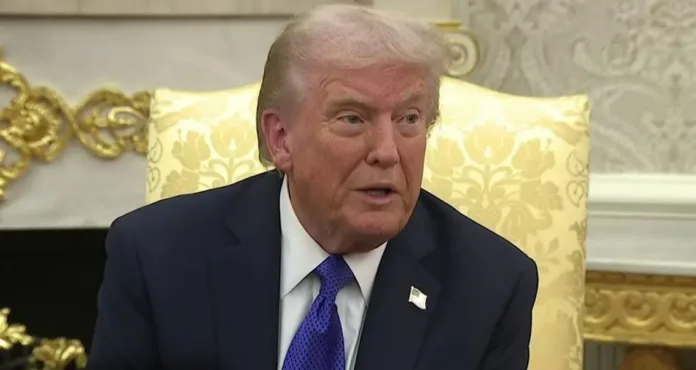Trump cancels Putin meeting after deadly strikes on Ukraine, hitting Russia with harsh oil sanctions
President Donald Trump has imposed sweeping new sanctions on Russia’s two largest oil giants, Rosneft and Lukoil, signalling a sharp escalation in Washington’s pressure campaign against Moscow. The move comes just hours after he scrapped a planned meeting with Russian President Vladimir Putin, citing a lack of progress in peace efforts over Ukraine.
Speaking alongside NATO Secretary-General Mark Rutte at the White House, Trump admitted his frustration. “Every time I speak to Vladimir, I have good conversations and then they don’t go anywhere. They just don’t go anywhere,” he said. The remark reflected growing impatience in Washington as Russia’s brutal campaign in Ukraine continues to claim civilian lives.
Earlier in the day, a wave of Russian missile strikes killed at least seven people, including children. The renewed bombardment underscored the stakes of the conflict, just as diplomatic channels between Washington and Moscow froze once again.
US Treasury Secretary Scott Bessent described the sanctions as a necessary step against “Putin’s refusal to end this senseless war.” He accused Russia’s oil companies of directly fuelling the Kremlin’s “war machine” and said the measures were designed to force an immediate ceasefire. “Now is the time to stop the killing,” Bessent said bluntly.
Trump echoed that urgency. “I just felt it was time. We waited a long time,” he said, calling the sanctions package “tremendous.” He added that they could be swiftly withdrawn if Moscow agreed to halt its military operations.
NATO chief Mark Rutte praised the American move, calling it a decisive act of leadership. “You have to put pressure, and that is just what he did today,” Rutte told reporters.
The sanctions target Russia’s energy lifeline. Together, Rosneft and Lukoil export more than 3.1 million barrels of oil per day—nearly half of Russia’s total production and around six percent of global supply. Their isolation could deepen Moscow’s financial strain as it continues to bankroll the war.
The decision aligns closely with British and European actions. Last week, the UK imposed similar restrictions, with Chancellor Rachel Reeves declaring, “There is no place for Russian oil on global markets.” The European Union followed suit with a fresh ban on Russian liquefied natural gas imports, a move European Commission President Ursula von der Leyen described as a “clear signal” of transatlantic unity.
Still, Russia’s embassy in London condemned the sanctions as reckless and destabilising, warning that they could disrupt global energy supplies and worsen the economic outlook for developing nations. “Pressure only complicates peaceful dialogue and leads to further escalation,” the statement read.
Behind the scenes, the White House has struggled to keep diplomatic efforts alive. A meeting between US Secretary of State Marco Rubio and Russian Foreign Minister Sergei Lavrov was cancelled after what officials described as a “productive” phone call—though no concrete progress was reported.
Trump’s team has pushed for a ceasefire along current frontlines, an idea Moscow has firmly rejected. Kremlin spokesperson Dmitry Peskov reiterated that Russia’s demands remain unchanged: Ukrainian forces must withdraw from the eastern Donbas region.
Trump, however, remains convinced that freezing the conflict is the only viable solution. “Let it be cut the way it is,” he said earlier this week. “Stop fighting, stop killing people.”
The breakdown of talks follows a series of false starts. Trump and Putin last met in Alaska in August, in a session once hailed as a potential turning point in the war. Instead, the bloodshed has continued, and hopes of a negotiated settlement have faded.
European leaders now see the sanctions as the last major lever left to compel Moscow to compromise. Whether it works—or simply hardens Russia’s resolve—remains uncertain. For now, the only clear outcome is that the cost of Putin’s war is rising, and Washington’s patience has run out.
